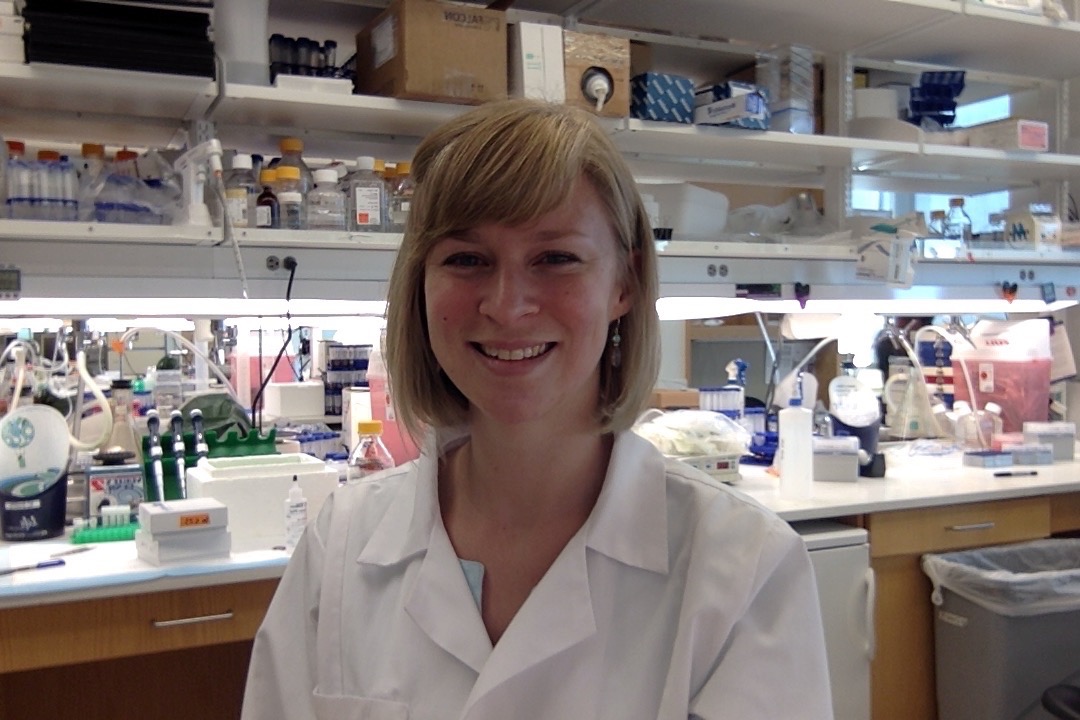What Scientists Learn from Cancer Patients
Damon Runyon Fellow Elise C. Jeffery, PhD, from the University of Texas Southwestern Medical Center
A few weeks ago I had the opportunity to attend a dinner with prospective donors at the beautiful new home of Damon Runyon Cancer Research Foundation board member Cindy Sulzberger in West Palm Beach, Florida. Cindy invited several of her friends to the gathering, and they were all eager to hear about the work of Damon Runyon scientists, and the goals of the foundation. As I described my work to the group during dinner, I was impressed by their interest in cancer research. They had a number of good questions such as, “Will we ever find a silver bullet cure?” and “How much progress could be made if we spent an amount equal to the defense budget on cancer research?” Although these questions have no easy answer, they reflect the thoughts of those in the community who have been affected by this disease.
I discovered throughout the evening that many of the guests had personal connections to cancer. Some had stood by a loved one in their fight against the disease, and others were cancer survivors themselves. One story that I found particularly inspiring came from a gentleman who had been diagnosed with bladder cancer several years back, and after successful treatment he is cancer free. He now serves as a patient advocate, speaking at scientific meetings to share his experience with doctors and researchers. His brave work helps those of us developing treatments to maintain our understanding of the experience of the most important people in this process: the patients.
Working in the laboratory on a daily basis, we can become immersed in our science, focusing on the incremental breakthroughs that eventually lead us to our goal of identifying a new drug target or developing a new therapy. However, the significance of this work to the community is also compelling. Hearing stories from brave individuals about their struggles with cancer, I was reminded that our work has the potential to directly impact the experiences of patients and their families.

